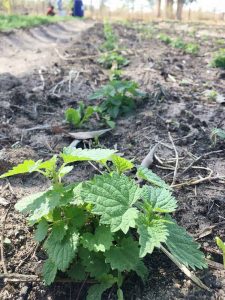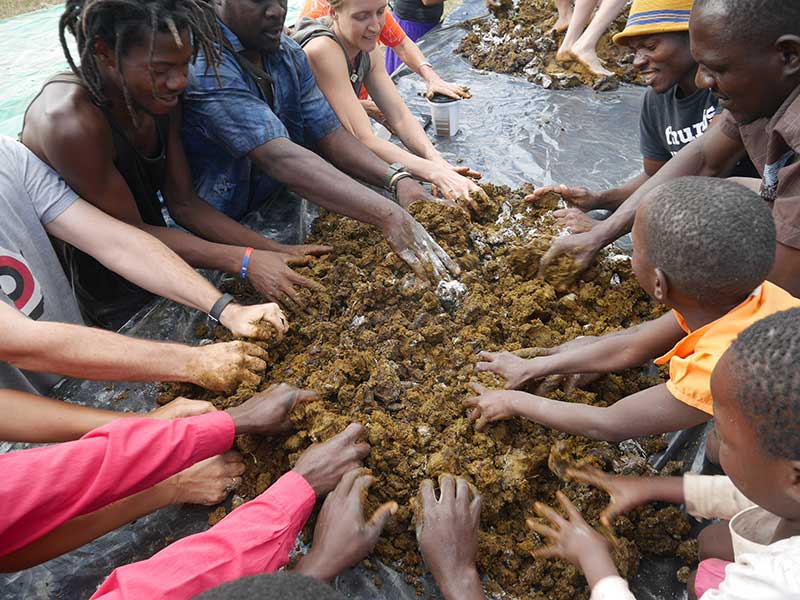LIFE LESSONS FROM THE COMPOST PILE!
The Gateway Zimbabwe community at Kufunda Village has been working on a biodynamic garden project for the past 18 months. The garden has been a means of feeding the community and there are also plans to begin a weekly veggie basket scheme, selling and delivering the fresh organic produce to Harare residents. It is also used as a teaching and demonstration place for the neighbouring community.
Biodynamic gardening and farming is an alternative agricultural practice, quite similar to organic farming, with the use of manures and composts, excluding any use of artificial fertilizers on the soil. It goes one step further in its use of biodynamic preparations – a form of herbal remedy – to enrich the compost and the soil. It takes an almost spiritual approach to how the soil, plants and livestock are treated as a single, interdependent unit and the intention of the biodynamic practices are to “restore, maintain and enhance ecological harmony”.


Biodynamic agriculture was inspired by integrative thinker Rudolf Steiner (1861 – 1925) and works with the rhythmic processes of life. Each farm is a unique organism in which each part serves the whole. The whole is made up of factors that lie beyond most conventional farming: including cosmic rhythms and the soil as a digestive organ of the plant. To bring these aspects together Steiner introduced the biodynamic preparations which make use of substances from the natural world that are exposed to natural forces and feed back into nature enriched. They are remedies for the earth (soil and plants).
Through the fellowship program, Gateway Zimbabwe has made use of the principles of biodynamic agriculture as a way to learn and teach deeper life lessons about society and how we co-exist with one another in our communities. During the Fellowship Modules, for example, the garden is used as a place where everyone comes together to work on CPP – Cow Pit Pat, which is a special compost made primarily from cow manure. The preparation process for CPP requires a kneading by hand, or using the feet, so the groups are encouraged to work as a unit, singing and at times dancing in the manure, building a spirit of oneness among them. It’s quite a cathartic process.

One of the Gateway Zimbabwe fellows speaks fondly about her recent experience making compost:
“I will always cherish the memories of the compost-making that I learnt at Gateway. The comparison I was taught about the compost vis-a-vis the people whom I live within the community; how different they are from each other and the difference between the contents that make the compost. What interests me most is the organic fertility that is produced from different contents that are used when making the compost; same applies to the good results and production that is produced when communities come together despite their differences, even in their own diversity.”
Learn more about the biodynamic garden and get lessons on how to create your own compost and adopt some of the very simple practices in your own garden here.